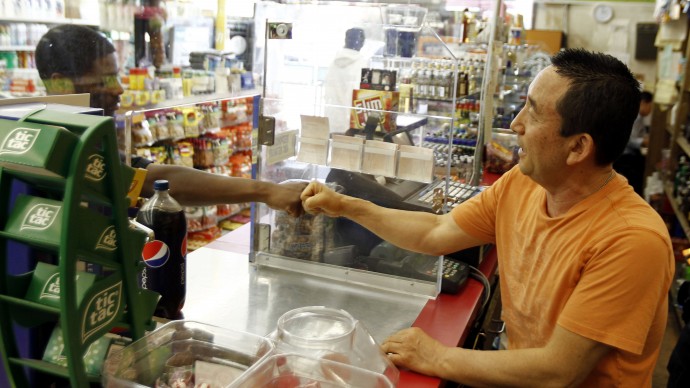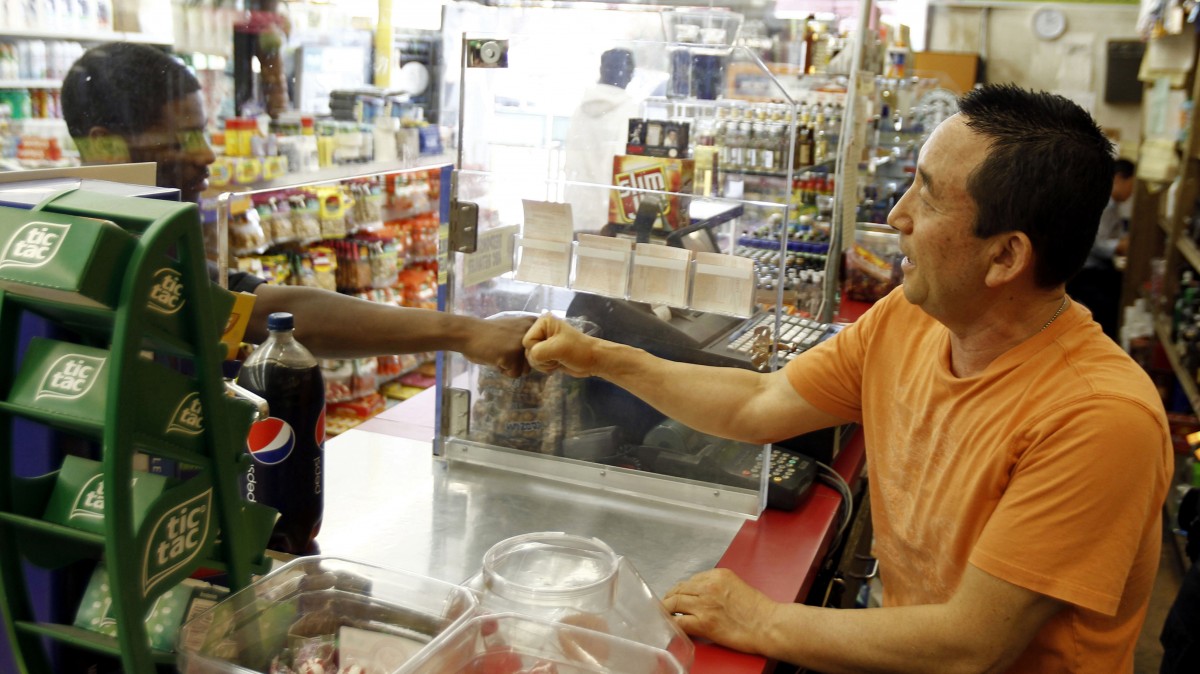
(MintPress)-Twenty years after the infamous Los Angeles riots erupted following the acquittal of four officers from the Los Angeles Police Department (LAPD) accused in the videotaped beating of black motorist Rodney King, Americans continue to struggle with racial inequality and police brutality.
Racial tensions soared in Los Angeles when three white officers and one Hispanic officer were acquitted in 1992 despite video footage captured by a private citizen, George Holliday, showing the four officers repeatedly striking King with batons and tasers following a high-speed pursuit. King, who was suspected of drunk driving and violating parole, suffered at minimum, a fractured facial bone, broken ankle and numerous bruises and lacerations.
Public outrage over the verdict sparked massive riots, predominantly led by Black Americans, that are remembered as one of the most violent instances of social unrest in U.S. history. In the six days following the verdict, 55 people were killed, over 3,100 businesses destroyed and nearly 3,000 people were injured as a result of the unrest.
On the first day of the protests, a group of men dragged a white man from his truck and brutally beat him on the street. The attack was broadcast live on national television from a helicopter above.
The riots were a manifestation of the overall feelings of animosity and distrust that many people felt towards the local government. Just weeks before the acquittal, a Korean liquor store owner was only sentenced to five years on probation by a white judge for the shooting of a young African-American girl after a confrontation over a carton of orange juice. The jury recommended a 16-year sentence.
Much has been done to improve racial tensions over the past two decades, and King agrees. “I can tell. It’s been so bad so long, it’s hard for people to see the difference,” King told TIME magazine. “Speaking for myself I see the difference in police relations especially in Los Angeles and in other parts of the U.S. too.”
The LAPD was 60 percent white in 1992, but it is now 60 percent minority, reported TIME. A survey by the Loyola Marymount University Center for the Study of Los Angeles found positive signs about race relations in their look at the city 20 years after the 1992 riots. According to the survey, 68 percent of respondents said Angelenos of different races and ethnicities get along very well or somewhat well, and seven in 10 people think the LAPD is doing “good” of “excellent” work.
“We see a lot of positive signs in the results of this survey,” said Fernando Guerra, director of the center and professor of political science and Chicana/o studies at LMU. “Angelenos are getting along better with each other, expressing confidence in their police department and feeling safer in their neighborhoods. There are some negative results, but much of that can be attributed to the overall direction of the national economy.”
The new face of police brutality
Though racial tensions seem to be dissipating, police brutality is still a constant across police departments in the U.S., coming to light more frequently as a result of the Occupy Movement that began last fall.
Over 6,900 protesters have been arrested across the United States, many under frivolous charges, since the Occupy Wall Street (OWS) movement spread from New York’s Zucotti Park last September with calls for social and economic equality in the United States.
OWS protester, Hilary Bettis, told MintPress in January of an instance when a young woman documenting police brutality in Zucotti Park was arrested. “When the cop saw the woman with the camera, he grabbed the back of her jacket while another cop threw her into the pavement face first and cut her lip. She was not resisting and was charged with resisting arrest in order to justify the attack.”
In one particular incident on the west coast, University of California, Davis, police officers were blasted for casually pepper-spraying non-violent demonstrators at an Occupy rally. On the six-month anniversary of the Occupy movement, OWS filmed video of the action on the ground, writing, “peaceful protesters are seen being tackled, punched, stomped, choked, hit with batons and thrown against cars for no reason other than sitting down to protest inequality in a public park.”
The New York Police Department (NYPD), already under harsh scrutiny for its controversial racial profiling programs targeting Muslim communities and political activist groups, has also been accused of hiding a report that vindicated a whistleblower that reported the NYPD had been putting people behind bars without cause.
A bill introduced in the Connecticut legislature in February would further exacerbate tensions between citizen activists and police by granting officers the right to prohibit individuals from photographing the performance of police duties if the filming “jeopardizes public safety, violates privacy or conflicts with other laws.” If in place 20 years ago, the bill could have blocked Holliday from recording King’s altercation with the police.
“It was not about race — it was about justice”
The controversial February shooting of unarmed 17-year-old Trayvon Martin by neighborhood watch captain George Zimmerman in Sanford, Fla. has brought racial tensions back to the surface of American society.
“When I heard the scream on the 911 call, I heard myself 20 years ago. It sounds like a death scream,” King told the New York Daily News about the Trayvon Martin case. “But it’s a touchy situation,” added King, “We have to wait for the justice system to take care of this.”
Thousands of people across the U.S. took part in what was called the “Million Hoodie March,” demanding justice for the boy who was killed while walking home from a convenience store wearing a hooded sweatshirt. Zimmerman was not initially arrested for the shooting due to a controversial law that allows a person to use deadly force when they feel threatened.
Reverend Al Sharpton, civil rights activist and President of the National Action Network, fears that Americans are losing site of real issues of police brutality and injustice by polarizing stories like that of Rodney King and Trayvon Martin around the topic of race.
“But what people often forget in Rodney King’s story is that it was not about race — it was about justice,” wrote Rev. Sharpton in the Huffington Post regarding the 1992 Los Angeles riots. “We allowed what was a grave travesty to be hijacked by those who wish to push racial divides, and we all paid the price. It was a case that should have united America; not pushed forward the worst within us,” he said.
Rev. Sharpton hopes that people will unite around the Trayvon Martin case and “remember that it isn’t about race, but rather justice for a dead teenage boy whose only crime was walking home with a bag of skittles and an iced tea.”
The Rodney King situation was “a missed opportunity,” wrote Sharpton in his blog post. “We cannot allow that to happen again.”


